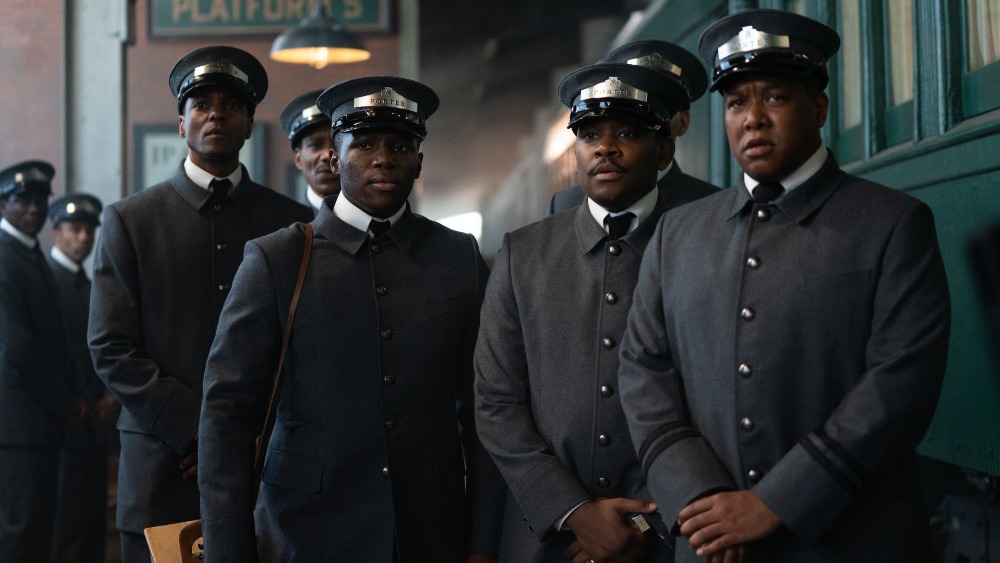Last April, Sphere Media took the Canadian Screen Awards by storm with 22 awards for its scripted content, including a record 12 wins for the historical Black drama “The Porter” and seven for queer comedy “Sort Of.” It was a big night for Canada’s third-largest independent producer, and in particular for Jennifer Kawaja, Sphere’s president of scripted and feature films for English Canada.
Previously, Kawaja spent decades heading up Sienna Films with her business partner, Julia Sereny, helming several award-winning projects like “Cardinal,” “Trickster” and “One Dead Indian.” The duo sold the company to Kew Media Group in 2017 and in 2020, Montreal-based Datsit Sphere snatched it up when Kew was placed into receivership. Last year, Sphere restructured and rebranded under a single banner with the intention of streamlining content creation, production and distribution.
Now, it’s full speed ahead.
In an interview with Variety, Kawaja confirms several upcoming projects. The company has optioned “A Complicated Kindness” from Miriam Toews (“Women Talking”) and is now developing a half-hour television series with Amazon Studios. Toews will co-write the scripts with Steve Cochrane and Erik Rutherford.
Sphere is also teaming with SAM Productions (“Ragnarok”) in Denmark and Sweden’s TV4 on a six-part, hourlong adaptation of the environmental thriller “You Are Obsolete,” which will film in Sweden and potentially last three seasons.
At home, Kawaja revealed Sphere has also developed several projects with Fab Filippo (“Sort Of) under a first-look deal and now they’re ready to hit the market. They recently set up “One Another,” a series about a minister in a run-down community who explores all aspects of faith, with CBC. And they’re pursuing “The Mozarts,” a comedic retelling of the Mozart family from the point of view of the musician’s sister.
The company is also developing an arthouse feature film with “Sort Of” co-creator and star Bilal Baig revolving around an equity rights worker by day and an adventurous soul by night. Baig will write the script this summer following Season 3 production on “Sort Of” and star in the final product.
As for its hit drama, “The Porter?” American partner BET+ opted against a second season, forcing a CBC cancellation due to lack of funding. However, Kawaja is currently exploring a limited prequel series with European partners. Should that happen, she’s hopeful it could lead to another season of the original series.
“When it comes to financing, you’re going through so many layers of thinking about how to position things in the marketplace and what kind of financial model will allow the piece to live in the most successful way,” she says. “You’re constantly making judgments and compromises, coming up with Plan B and Plan C. That’s what’ we’re doing with ‘The Porter.’”
Most recently, Sphere also reached an agreement with “Baroness Von Sketch” duo Meredith MacNeill and Jennifer Whalen on “Small Achievable Goals,” a single camera comedy “about the motherfucking change of life.”
“It’s hard to say we’re looking for one specific kind of show, but we love dark comedy and adult drama,” Kawaja explains of the upcoming slate. “We love things that are hopefully entertaining but have some kind of point to them. Some kind of social meaning or political underbelly.”
The exec reveals the company can only balance 20 active projects at a time, half with broadcasters and half being developed internally.
“Every project needs a lot of attention, a lot of care, a lot of support. We really only hope to do two or three series a year maximum. We are not a volume company, it’s not structured for that. It’s structured to hopefully create wonderful, distinct work.”
Kawaja is of Middle Eastern descent and grew up in the Caribbean. As an immigrant to Canada, she believes she’s always had a consciousness of recognizing who was telling stories, who was being excluded and why. For the producer, diversifying content comes from a deeply personal place.
“We have a responsibility as storytellers to reflect our societies and not just entertain, but explore, reflect and dissect who we are as people,” she says. “It’s been a preoccupation of mine forever. But I’ll also continue to tell stories where the race or gender or sexual orientation is not the tapestry of the show, because I fell in love with the story or felt it needed to be told.”
Looking ahead at the Canadian TV and film landscape, Kawaja is waiting like many others to see how certain events, like the WGA strike and the now-legislated Bill C-11 unfold. She notes her phone has been ringing off the hook since the strike, but this time around, creatives are being careful about what they’re willing to sell internationally.
“At first everyone thought it was going to be about opportunities, but that’s not the case,” she notes. “Those opportunities are mitigated by people wanting to support the strike, and people being worried about being targeted if they don’t.”
She adds she’s had many conversations with creators to determine their comfort levels and stands with writers getting properly paid and recognized for their work—financially and otherwise.
“It’s a really tricky position to be in,” she adds. “At the same time I’m an independent producer who has to work with a very low budget. I try to keep everything in my head in balance. But without writers there is no industry. They really do form the backbone of everything we do and everything we do well.”


